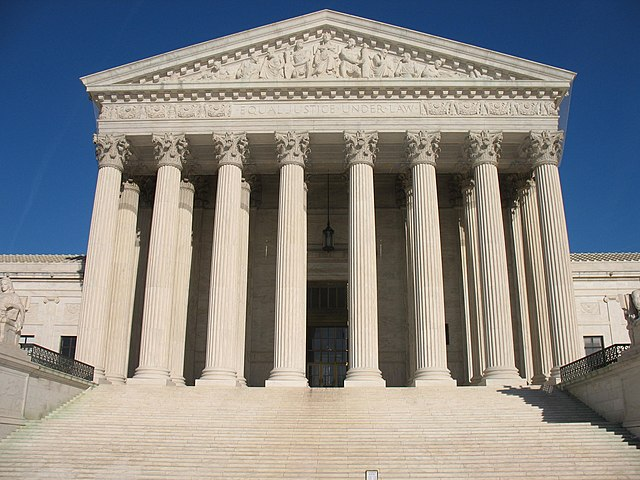As it happened, the day that the Dobbs decision was handed down by the Supreme Court was also the day that I came down with COVID, so in addition to my general hesitancy to rush out with the same "hot takes" which everyone else is peddling, this gave me a forced pause before having much of anything to say about the decision.
At this point, the decision is safely old news, but since I haven't been blogging I'd like to take that time to circle back to the topic.
I've been politically aware for about thirty years now, and for the last twenty years or so, it's been a regular practice of those Catholics who disliked the increasing alliance of anti-abortion advocates with the GOP to mock the idea that supporting Republicans who in turn promised to appoint originalist of textualist judges who did not think that Roe v. Wade was correct in finding a right to abortion via a right to privacy which in turn resided in the emanations and penumbras of the constitution.
"It's like Lucy with the football in Peanuts," we were told. "Republicans are not going to appoint judges who will overturn Roe because Republicans don't want Roe overturned."
There was a certain amount of evidence that people pointed to to support this view. Justice Harry Blackmun who was appointed by Nixon was the author of Roe, and indeed a majority of the justices in the pro-abortion majority in Roe were appointed by Eisenhower or Nixon, though Nixon had also appointed Rehnquist who authored the dissent (joined by Byron White who has appointed by JFK.)
Appointees from Ford, Reagan, and George H W Bush were decidedly spotty on the issue. John Paul Stevens (Ford), Sandra Day O'Connor (Reagan), Anthony Kennedy (Reagan) and David Souter (H W Bush) all ended up as Roe supporters to varying degrees. Only Antonin Scalia and Clarence Thomas were reliable opponents.
However, to look at it this simply is to ignore the large task which faced conservatives looking to roll back a brand of judicial practice which took the constitution as a loose mission statement based upon which justices could discover rights based on their judgement and common sense.
With the Federalist Society as the intellectual incubator, starting in the 1980s the conservative legal movement developed a legal philosophy focused on interpreting the law to mean what it said rather than what judges thought it ought to mean.
The success of the FedSoc approach is underlined by the solid performance of the judicial appointments of the Trump administration, which were effectively outsourced to the Federalist Society, resulting not only in the appointments of Gorsuch, Kavanaugh, and Barrett (all of whom stood in solid support of Alito's majority opinion overturning Roe) but in an outstanding slate of judges appointed to all other levels of the Federal judiciary during the Trump years.
There are, from a wish-fulfillment point of view, limits to the originalist/textualist approach. It means finding laws to mean what they say, rather than what conservatives might wish them to mean. But in a highly pluralistic society, reading laws as written is perhaps the best middle ground one can find. Nor is this judicial approach limited to conservatives, as the outstanding interview that Advisory Opinions did with Yale Law professor Akhil Amar underlines.
Where things go from here remains to be seen. Victory in politics and law can be a difficult thing. But one thing is clear: the mocking claim that it was a fool's errand to try to install solid judges, who would recognize that the US Constitution does not enshrine any right to abortion, was a false claim. Appointing good judges worked. And whatever else one may think of Trump (and I don't think much good of him these days) the judges he appointed were in general a very solid bench, perhaps in great part because Trump himself has few opinions on the matter and simply outsourced it all to the Federalist Society.










